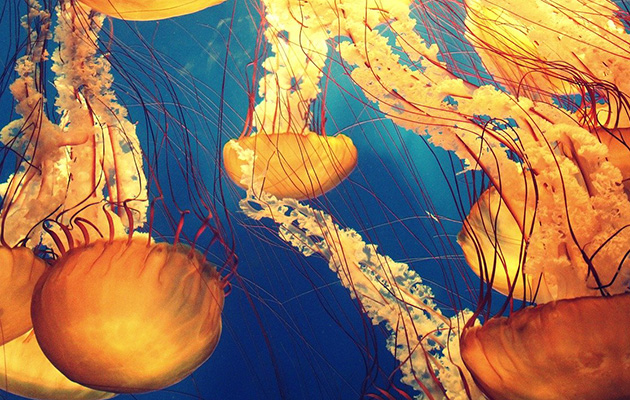
A database which will help Marine Scotland monitor the status of zooplankton well into the future has been compiled by an RGU MSc placement programme student working remotely from his home in Athens.
Georgios Orfanakis, an MSc student studying Data Science at the university, moved back to Greece to continue his studies when RGU moved all its courses online as a result of the pandemic. That meant his 12-week placement with Marine Scotland had to be carried out completely remotely.
He was tasked with bringing together zooplankton data which had been collected over several decades by various methods into a central database. Zooplankton is an essential part of the marine food chain and monitoring zooplankton populations can indicate environmental changes and gives information on marine species.
Enormous new database created for researchers
By the end of the project, data from 57 surveys had been imported to the new database, giving researchers access to more than 215,000 samples and more than 18 million results.
“Marine Scotland can now use the database to access data which can be used in their research into the seas around Scotland,” said Georgios. “Data spanning 30 years can now be retrieved from one source. They will also be able to compare it to older data which they have, because they have data going back to the beginning of the 19th century, they just haven’t digitalised it yet.”
Georgios’ placement was part of The Data Lab MSc placement programme, a collaboration programme between The Data Lab, Scotland’s innovation centre for data and AI, and 12 Scottish universities. The programme focuses on applying academic knowledge to the world of industry and it works with businesses across all sectors to provide placement opportunities.
Now back studying in Aberdeen, Georgios said there had been advantages and disadvantages to working remotely.
The most difficult part was not being able to physically work alongside someone who could explain anything you might not understand,” he said. “Although these placements don’t generally require students to be there in person five days a week, being able to have direct contact is really important and the face to face meetings that would normally take place would have helped.
However, working remotely stood me in good stead when it came to getting a job. I’m now working remotely from Aberdeen as a qPCR data scientist for Cambridge-based Charles River Laboratories. The work basically involves checking the correctness and analysing results on COVID-19 tests.
The fact that I worked completely remotely in industry during my placement was an asset. As things stand, more and more of these types of jobs will be carried out remotely because of the pandemic. It’s inevitable that working conditions are going to change as we rely more on computers. Because of the crisis, things have developed faster, and more companies will move towards remote work.
Professor Colin Moffat, Chief Scientific Advisor Marine, said:
We are delighted with the results of this project which has seen substantial parts of archive plankton data transferred into a comprehensive database.
The workflow of sampling and analysis marine plankton can be quite complex so typically we would meet the student for at least a few days and walk through the process. However, given the circumstances this year the project was run remotely, and we had to send images, reports and information topic sheets instead and make sure Georgios was supported though regular contact.
Much of the data involved was from projects carried out by staff who have retired or moved so it was important to capture this in a well-structured and accessible format. We will be able to use this to help monitor the status of zooplankton, an absolutely fundamental component of marine food webs, and for research and assessments, for years to come.
Read more about Georgios’ story in our Marine Scotland Case Study.
If you are an organisation interested in hosting a student for a placement, find out more about our short data science placements or get in touch.
